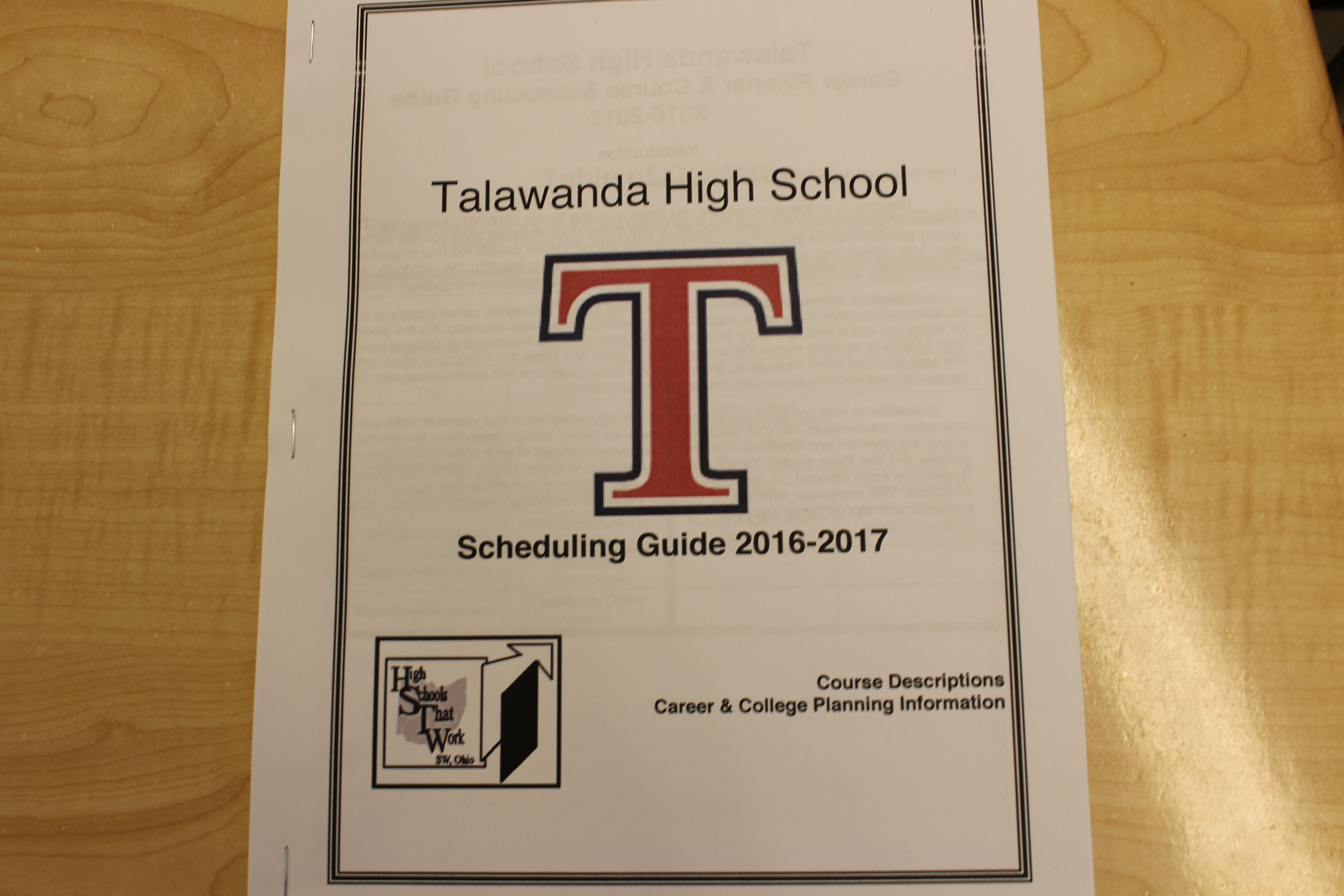Flexible Scheduling May Offer New Options at Talawanda
 OXFORD – A new survey out to students at Talawanda High School is asking if there is support for Flexible Scheduling classes, which are electives that could be taken with peers and a teacher outside of the school day at an off-school site.
OXFORD – A new survey out to students at Talawanda High School is asking if there is support for Flexible Scheduling classes, which are electives that could be taken with peers and a teacher outside of the school day at an off-school site.
The English department, who is reviewing the possibilities of having English electives such as Topical Literature, News Writing, and Creative Writing as flexibly scheduled, recently put out a survey to all students asking if they supported the idea of meeting outside of school to take classes.
The idea, which was proposed by THS English Teacher Kalinde Webb, is meant to give students an opportunity to take an elective that they wanted, but couldn’t because of scheduling conflicts during the school day. “It’s really hard for students to get all the courses they want as a result. I think having the option to meet a class outside the school day would make scheduling core classes easier,” Webb said.
She also commented that the idea will need to be thought out, but said the administration is on-board with the proposal. “Mr. York was very supportive of what he called ‘outside the box’ thinking, so I was encouraged to collect student feedback,” Webb commented.
A typical schedule could include meeting about twice a week outside of school at various locations, according to Webb. “Students and the teacher might agree to meet at Lane Library or at a museum one Saturday — or go to Kofenya on a Wednesday after school,” she said.
But, there are many advantages and disadvantages with meeting outside of school for a weighted class. Webb said there are many things to think about when it comes to following through with the idea. “I imagine it would be hard to get all the students to agree on a time and place. Transportation to off-school sites might be an issue for younger students, especially.”
She also said some time commitment may have to be with the teacher, too. “The teacher would have to be willing to meet some students one on one, probably after school.”
Another concern of Flexible Scheduling would be finding a time that meets all students’ schedules. “Another big potential drawback I see is that students who are already overextended could pack in even more activities,” she mentioned. With more and more students getting involved in after school activities, as well as sports, and jobs, Webb said this might be the biggest problem.
But, with all the disadvantages, there are many advantages to meeting outside of school for a class. Some advantages brought up were that students could meet in real places such as libraries, where learning could be more interesting. Museums would provide students with hands-on experiences too, something that couldn’t be repeated in a classroom. Students may also have more fun in a less-serious environment, where learning may be more laid back.
English department chair Christene Alfonsi mirrored Webb’s views, saying flexible scheduling could alleviate elective blocks, but the disadvantages are plentiful. She said flexible scheduling would separate the economic divide among students, with transportation being another large issue. “Students who don’t have transportation outside of our normal bussing schedule would be excluded from this opportunity,” she said. “That is a concern as we want to promote fair opportunities for all students.”
Alfonsi also conveyed that flexible scheduling would probably not be a widespread practice, but might be an idea for the future. “I think flexible scheduling could fulfill a small niche, but I don’t see it becoming a widespread practice at THS,” she said.
Meanwhile, Webb said there is interest in flexible scheduling, but she wants to know how much. “I have heard from many students that they like the concept; I want to look over the survey results carefully to see just how much interest is really out there,” she said.
The flexible scheduling could start as early as next year.


